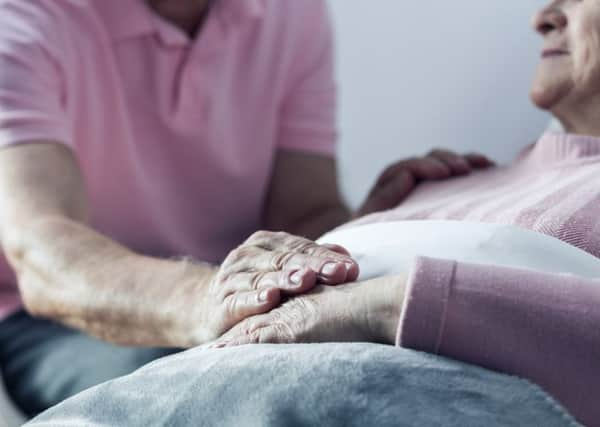There’s no better Christmas present for those who’ve lost a loved one than this – Dr Catherine Calderwood


It is often said that there are only two certainties in life – birth and death. As an obstetrician, I have written often about the priority we should put on the health of our pregnant women and families as they truly hold the future health of the nation in their hands.
We are less good at talking about the end of life, dying and the bereavement that follows. Circumstances surrounding a loved one’s death can be remembered by those left behind for the rest of their lives. The impact on families of a ‘bad death’ can be devastating and, of course, there is also an effect on healthcare professionals who deal with death and dying frequently.
Advertisement
Hide AdAdvertisement
Hide AdI remember a weekend working on the maternity unit when I was pregnant with my first child. I met a young woman who was at the same stage as me, but her baby had stopped moving. Initial scans had failed to find a heartbeat. Often this is when I can use my experience to find that elusive heartbeat, but not that day. I had to tell that young couple that their baby, their child, had died – feeling so guilty that mine was still alive. At the end of my shift, I felt exhausted, bereft and deeply sad.
It is often said that time heals but I am not sure about that. I think the passage of time can make it easier to deal with grief, but the pain may never leave us.
Conversations are starting around ‘living’ grief and bereavement. As the numbers of people living with dementia increases, the experience of their carers is becoming a focus. They are living with and caring for someone, often a lifelong partner, who may no longer care for them or even recognise them.
Not a time of joy for all
Carers may be isolated, restricted by the frailty and confused behaviour of the person they look after. Comments come from others like “at least they’re still with you”, yet they are grieving for the person they have already lost. For example, “I’m not a widow yet, but I don’t feel married either”, as one lady told me. Carers feel guilty and internalise their own emotions. Together in Dementia Everyday (Tide) offers a support network for the carers of those with dementia, allowing those difficult thoughts and feelings to be surfaced.
I recently attended an NHS Education for Scotland conference that used the power of patient stories to explore the impact of bereavement on people. The main realisation was that we need to give our staff the permission, time, space, and support to discuss these cases as teams, exploring feelings and emotions, not just clinical facts. It often feels safer to focus on the latter, but the former may prove far more therapeutic. This, of course, can apply to the conversations we also have with patients and families and you can have with your own families at home.
Why indeed am I writing an article about death and bereavement, when you perhaps want to read something uplifting at this time of year?
The reality is that Christmas is not a time of joy for everyone – loss can be felt keenly, absence of a family member all the more obvious, a strong sense of missing someone or shared experiences, a trigger for grief suppressed. So at this time of preparation for celebration often with family, take some time to really talk, to acknowledge grief and even the awkwardness about mentioning it. I guarantee both you and the person you are talking to will feel better for it. What better gift at Christmas?
Catherine Calderwood is Scotland’s Chief Medical Officer and she is grateful to Dr Kenneth Donaldson for his contribution to this article.
